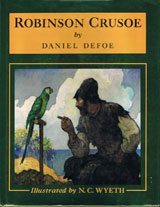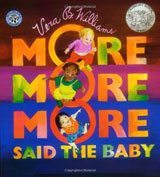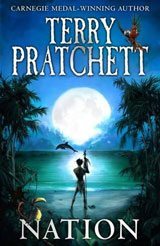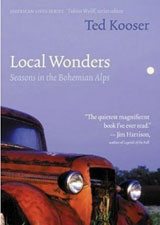by Virginia Euwer Wolff
Now winter downs the dying of the year,
And night is all a settlement of snow…
—Richard Wilbur, “Year’s End”
We all have our circles of particularly mourned lost ones. As our hemisphere darkens down in this elegiac season of the winter equinox, and death has been so relentlessly in the air during 2015, I wave my own little flags of gratitude to some of my mentors and accidental teachers.
 John Rowe Townsend (1922−2014): More than a decade ago, hearing him lecture on the canon, I suddenly admitted to myself that I didn’t actually know Robinson Crusoe. I immediately read it: a surprising 250-year-old story, a survival manual, a panorama of ways of discovering the daily world and of pondering existence. And just this week, listening to Treasure Island in my car, and being more concerned with hawsers and cutlasses and scoundrel mutineers than with speed limits or miles per gallon of Regular, I thank John again for reminding his audience to go to sea with Jim Hawkins.
John Rowe Townsend (1922−2014): More than a decade ago, hearing him lecture on the canon, I suddenly admitted to myself that I didn’t actually know Robinson Crusoe. I immediately read it: a surprising 250-year-old story, a survival manual, a panorama of ways of discovering the daily world and of pondering existence. And just this week, listening to Treasure Island in my car, and being more concerned with hawsers and cutlasses and scoundrel mutineers than with speed limits or miles per gallon of Regular, I thank John again for reminding his audience to go to sea with Jim Hawkins.
Lloyd Alexander (1924−2007): A lifelong music lover, his instrument was the violin; he told me that he’d played for years in “a wretched quartet” and tactfully agreed with me about a knotty fifth-to-fourth-position shift. Every hard-working musician should have such piercing lessons as a wretched quartet can teach.
 Vera B. Williams (1927−2015): Using her unique microscope, she showed us how tiny injustices are huge injustices and how we might rise to meet them. Among the essential jollities she celebrated: More, More, More, Said the Baby. Reading it with a very young child can’t not make each of us feel better. And her radiant Scooter let new light and air into my world.
Vera B. Williams (1927−2015): Using her unique microscope, she showed us how tiny injustices are huge injustices and how we might rise to meet them. Among the essential jollities she celebrated: More, More, More, Said the Baby. Reading it with a very young child can’t not make each of us feel better. And her radiant Scooter let new light and air into my world.
Walter Dean Myers (1937−2014): Brenda Bowen put a copy of a new book called Fallen Angels in my hands in 1989. That story sharply shifted the way I looked at 1968, a year I thought I had known. His books can teach us about every war ever, between two people or among millions. In our recent epidemic of urban violence and despair, I’ve heard myself sermonizing at the evening news: “They haven’t had enough Walter Dean Myers to read!”
 Sir Terry Pratchett (1948−2015): The giant turtle swims slowly through space, and on its shell four elephants walk in a circle, and on their backs they balance Discworld, whose inhabitants carry on with a ludicrousness we can recognize. But it’s his novel Nation that holds pride of place in my bookshelves, where Mau and Daphne go about their baffling, complicating work, encouraging me by their example as I go about trying to do mine.
Sir Terry Pratchett (1948−2015): The giant turtle swims slowly through space, and on its shell four elephants walk in a circle, and on their backs they balance Discworld, whose inhabitants carry on with a ludicrousness we can recognize. But it’s his novel Nation that holds pride of place in my bookshelves, where Mau and Daphne go about their baffling, complicating work, encouraging me by their example as I go about trying to do mine.
Tom Feelings (1933−2003): In his hands the shattering story of The Middle Passage is a collection of 64 black and white images, a tragic ballet of almost incomprehensible cruelty. And every time the media bring me news of a new document or movie or play or poem, promising newly penetrating articulation of the appalling crime of enslavement, Tom Feelings’ indelible portraits speak up again, making the unfathomable fathomable, shaping the severest ugliness into profoundly affecting art.

Ruth Heller (1923−2004): Tireless, vibrant artist, cheerleader for grammar. Ruth and I cruised down the Yangtze River together. She bought a pair of woven boat trackers’ sandals on the sunshiny bank of the narrow Shennong Stream. “What are you going to do with those?” I asked her. “I’m going to hang them in my studio.” “Oh! Then me, too!” (Ever since entering elementary school, I’ve been copying people who know more than I do.) My pair of rope sandals hangs in my studio to this day. Visitors ask about them, giving me opportunities to tell about Ruth and the river.
George Gibian (1924−1999): When I was in college, one professor encouraged me as a writer. By the time I grasped that I should thank Mr. Gibian (a man of modest, dignified mien and daring intellect) in the acknowledgments of a book, I found that he had died two years earlier.
Mark Harris (1922−2007): The next teacher to encourage me, 25 years later. It was he, during a summer walk on the Oregon coast, who directed me to sit in my chair and stay there and keep writing. The dizzying reverberations of our lunchtime ramble settled down after a while and I did what he said.
 Let’s listen to Poet Laureate Emeritus Ted Kooser in Local Wonders:
Let’s listen to Poet Laureate Emeritus Ted Kooser in Local Wonders:
Life is a long walk forward through the crowded cars of a passenger train, the bright world racing past beyond the windows, people on either side of the aisle, strangers whose stories we never learn, dear friends whose names we long remember and passing acquaintances whose names and faces we take in like a breath and soon breathe away.

As always, Jinny takes us on a contemplative walk, turning our hearts with her elegantly assembled words. They are a gentle nudge to keep my mind open to people like Walter Dean Myers and Vera B. Williams and John Rowe Townsend, and all of those she names as fellow travelers whose generousity have so enriched us. Thank you!
Gosh, Suzanne. Thank you! But wouldn’t we be our better selves if we had the presence of mind to thank our elders and betters during their lifetimes? Good New Year wishes to you and everybody.
Jinny, That is lovely. George Gibian is the only name I don’t know and Mark Harris the only one I didn’t know personally. All the rest impactted my life as a reader, librarian, and friend. Thanks.
Love, Amy
Amy, thank you! Lucky you to have known these eloquent figures. Lucky them to have known you. Happy New Year to you and all of us.